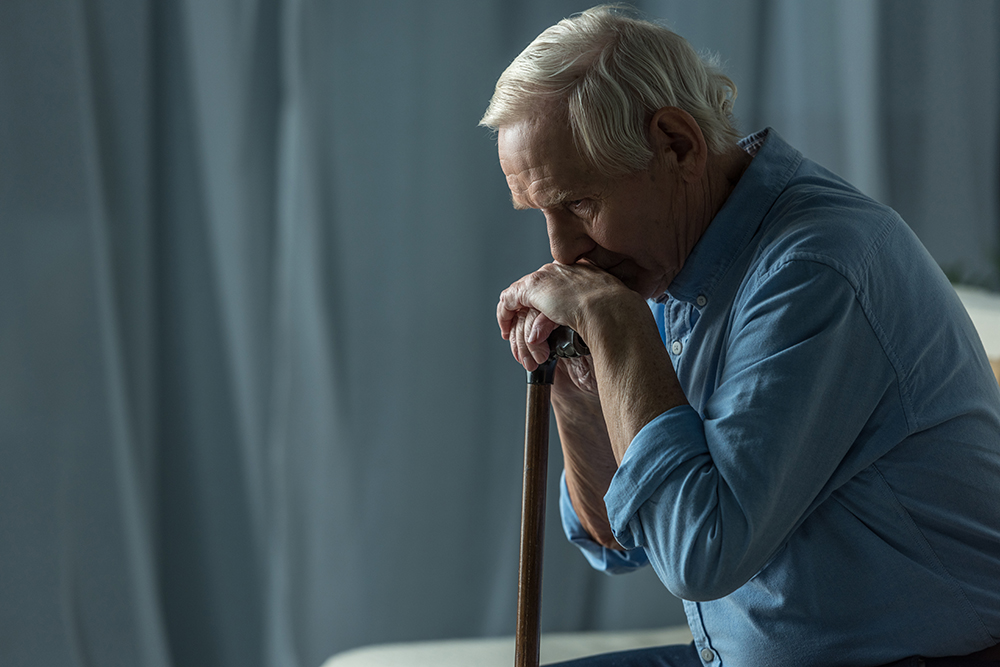
Isolation During COVID-19 May Increase the Risk of Elder Abuse
As some of the most vulnerable Americans to the COVID-19 pandemic, older adults are staying at home to lower their risk of infection as the coronavirus spreads throughout communities. The American Bar Association (ABA) reports that an unfortunate outgrowth from this isolation is an increase in risk factors for elder abuse, exploitation, and neglect. Senior adults facing self-imposed or long-term care facility lockdown need to follow health and safety guidelines that the Centers for Disease Control and Prevention (CDC) outline to protect themselves. Also, if you have a senior family member, you need to understand the guidelines set forth for the protection of your loved one.
Socially isolated seniors can become increasingly lonely, despondent, and feel abandoned, which is a medical problem in its own right as it leads to depression, weight loss, and sometimes self-harm or disruptive behavior. Remote monitoring and online social interaction during the coronavirus pandemic are the few ways to stay actively “in touch.” Yet, it provides limited visibility to the full scope of the problems your senior may be facing.
Essential services like Adult Protective Services (APS) will continue receiving and investigating reports of neglect, abuse, and exploitation. APS is a distributed system approach, typically handled via local or state health, aging, and regulatory departments. Abuse occurs in such variation, and as such, there is no generic template to employ as a solution, thus the multidisciplinary approach to providing aid and support to older adults. Information as to where to report problems in each state is online at the National Adult Protective Services Association (NAPSA).
Be aware that because of social distancing protocols, some APS programs are temporarily modifying how the work. In situations when it is reasonable to do so, the first contact will be made by phone rather than in person. Some programs may extend the time frame for the first contact to meet staffing challenges unless the report indicates there is an imminent threat to safety or health. If this is your circumstance, be specific in reporting that your situation is dire.
It is a sad fact that often adults who are vulnerable to abuse are isolating with their abusers. Wellness phone calls and video check-ins should occur frequently and at varying times to identify if your loved one is experiencing neglect, exploitation, or abuse. Tips on specific questions to ask that raise red flags, or signs of abuse are online at the American Bar Association (ABA) website. Recognize that not all abuse is emotional or physical. Financial exploitation is a rampant problem among the elderly, so extra diligence is required in reviewing your loved one’s finances. Remind your senior that while it is natural to want to help family and friends experiencing financial problems, they must first take care of themselves.
Caregivers are human beings too, and many experience fears of contracting COVID-19 while caring for the vulnerable elderly population. Some have found the financial rewards of unemployment more beneficial than work as it allows them to remain at home in isolation with their own family. Caregivers are supposed to call for backup if they are unable to meet the needs of their care recipient. Community resources are stretched thin during COVID-19, so if you have a loved one who requires caregiving, be sure to have a reliable worker or have multiple backup plans.
It is reasonable to assume that all local services for seniors are overwhelmed trying to meet their needs and that self-neglect may stem from a senior who cannot get the services provided that they require and give up trying. These services include the basics of life, like needed medical supplies and groceries. Check if your loved one is receiving the medications and meals they require to keep them healthy.
Scams are an unfortunate yet inevitable byproduct of the coronavirus pandemic. Remind your senior never to provide information on health insurance, Medicare, Medicaid, or financial information to anyone with whom they did not generate contact. Remind them that the IRS’s first point of contact with Americans is always via postal mail. Contact the United States Department of Justice at their website if you suspect a scammer is targeting you or your loved one.
Asymptomatically, or purposefully exposing a vulnerable older adult to the coronavirus can result in serious illness or death. Make sure you keep your senior’s circle of contact extremely limited and be aware of the individuals who provide their care and talk to them often about the protocols they follow to ensure your loved one’s health. Vigilance about the health of your senior and their caregiver is essential to lower the risk of contracting the coronavirus.
The COVID-19 pandemic is changing the way Americans interact, and it puts extra stress on our most vulnerable population, the elderly. Protocols of isolation are useful to limit the spread of the coronavirus but also increase the risk of elderly abuse, exploitation, and neglect. Be an advocate and protective force for your loved one by raising your awareness of how this pandemic increases their risks.
If you have questions or would like to talk about planning opportunities to protect you or a loved one from financial abuse, please don’t hesitate to reach out.
